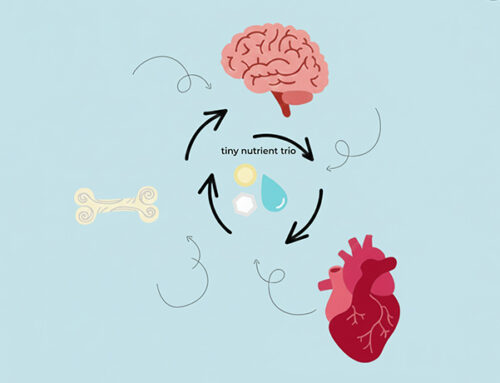1. Constipation
Constipation is another common source of abdominal pain, and it is usually caused by diet or lifestyle, though conditions such as irritable bowel syndrome or IBS can also cause it. Medication and the consumption of fiber-rich foods can often ease constipation. If it lasts more than a couple of days, one should speak to a doctor.
2. Indigestion
Indigestion is another frequent cause of abdominal pain. It can also cause chest pain if it develops as acid reflux. Dyspepsia, the medical term for indigestion, can also lead to bloating, gas, and nausea. Chewing and drinking more slowly and avoiding food consumption for a few hours before bed can often alleviate this issue unless a more serious health condition is to blame.
3. Appendicitis
Though appendicitis can be life-threatening if it advances to the point where the appendix bursts, it is considered quite treatable when caught early. Sudden, sharp, and persistent abdominal pain on the right side of the body could be an indication of appendicitis, and anyone who feels this sensation should have it investigated as a precaution.
4. Food Poisoning
Most people experience the pain that stems from food poisoning at least once in their lives. Food-borne bacteria can infiltrate the body when food is not cooked to a proper temperate, prepared on a contaminated surface, or contaminated before consumption (as in the case of an egg whose existing crack goes unnoticed). In most cases, the abdominal pain from food poisoning should not last more than a day or two, but severe cases can last for a week to ten days.
5. GERD
GERD is one of several names for acid reflux and acid regurgitation or heartburn. Normally, acids in the stomach process food. If the esophageal sphincter, the flap that prevents food and stomach acid from going back up the esophagus, is weakened, the stomach acid can back up into the esophagus or even as far as the throat, causing pain that goes from the abdomen, all the way up.

6.Gallstones
Abdominal pain can be the result of gallstones. Some people are more prone to these accumulations of calcium salts and other substances, due to genetics or other factors. The stones block the passage of bile through the gallbladder, and the pressure this causes may produce severe abdominal pain. In the most extreme cases, a surgeon must remove the gallstones.
7. Gluten Intolerance
This is a less common cause of abdominal pains, but awareness of gluten intolerance is becoming more widespread. A small number of people can’t properly process the gluten found in foods such as wheat, barley, and rye. Those who do not know they have an intolerance or the more serious allergy, celiac disease, may be alerted to the fact by severe stomach or abdominal pain after consuming gluten. Most people with gluten intolerances avoid products containing this protein.
8. Lactose Intolerance
Lactose is sugar that occurs naturally in milk products. Most people are able to process this sugar, but some cannot digest it properly. People with lactose intolerance can develop indigestion and other symptoms that can involve abdominal pain when their bodies try and fail to digest this sugar.
9. Irritable Bowel Syndrome (IBS)
IBS is a disease of the large intestine that causes abdominal pain, cramps, and bloating. In recent years, other seemingly less-related symptoms can also develop in people with IBS, including fatigue, insomnia, anxiety, and depression. A bowel movement or passing excess gas may partially relieve abdominal pain caused by this condition, but more long-term, medical solutions are often required.
10. Gastroenteritis
Gastroenteritis is the medical term for a stomach bug caused by a viral infection. This is one of the most common causes of abdominal pain, and many people with the infection also experience diarrhea. The pain can be severe enough to be debilitating, but it usually passes within 24 hours, assuming the infected individual has a healthy immune system. In extreme cases, gastroenteritis can last as long as two weeks.
A new study shows the probiotic Lactobacillusrhamnosus strain GG, commonly known as lactobacillus GG or LGG, significantly reduced the severity and frequency of bouts of abdominal pain in children with irritable bowel syndrome.
Saccharomyces boulardii has been shown to help upset stomachs from a variety of different causes. This transient probiotic strain effectively cleanses pathogens from the digestive tract, and helps to restore the gut flora back to a healthy balance. It can be taken alone, or used in conjunction with other probiotic strains, which are known to colonize the gut epithelium, preventing further adherence from pathogens.
Saccharomyces boulardii effectively removes pathogens from the gut, including Salmonella and E. coli so may provide natural support for food poisoning.
Saccharomyces boulardii has been researched for rotavirus symptoms, one of the causes of viral stomach bugs.
Saccharomyces boulardii is has been researched for Traveler’s diarrhea.
Lactobacillus acidophilus has been researched for diarrhea and IBS symptoms.
Lactobacillus paracasei increases IgG antibody, which is one of the body’s first immune responses against viral and bacterial infections.
Taking a high-quality well-researched daily probiotic helps to maintain a healthy microbiome may help to avoid upset stomachs.





